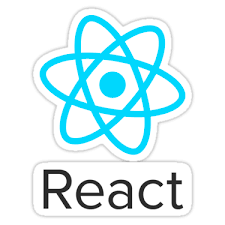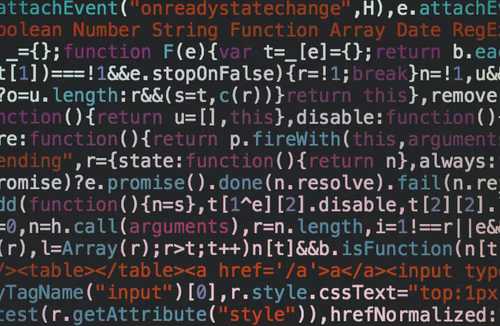
Every manager dreams of finding the perfect React js developer for their website project.
But not everyone shares the secret sauce behind making it happen.
Until today that is… We’re unveiling them all.
Before you put out a job description on LinkedIn or start hunting for an offshore development agency to hire a React js developer… There are 8 key factors you need to be clear about to ensure you hire the best developer for your team.
8 Key factors to consider while hiring a remote React js developer:

1. Look at their work experience.

When it comes to hiring React js developers, don’t be blindsided by fancy-name college degrees.
In the world of development, experience matters more than a degree.
Any kid out of college (or even one with a Coursera certification) can call themselves a React js developer. But no amount of textbook or practice knowledge can beat real, hardcore experience with a project.
The more experience the developer has, the more likely they are to be able to tackle complex problems and deliver a high-quality website to you.
2. Review their portfolio.

Their years of experience might give you a quantitative idea of their skills.
Their portfolio will give you a qualitative idea of their coding skills.
So ask them for access to their Github or Stack Overflow profiles. Go through them in detail for a more wholesome picture of their abilities.
Ideally, the candidate should have worked on a project similar to yours before, or have projects in your industry at least.
But don’t let that be your only criteria, especially when hiring junior developers.
Also consider the technique, knowledge, and problem-solving skills they’ve used in their previous projects. This will give you a better idea of their current skill level, and more importantly their potential for growth.
Pro tip: Notice not just their technical skills, but also how clean and organized the code is. Many good managers have had trouble with this when they hand off a project from one developer to another down the line.
To their dismay, they often find that the code has been organized in such a messy fashion that no one except for the original developer can work with it.
3. Are they up to date on industry trends?

No industry changes as fast as the tech industry. And with React js being an open-source framework with such a massive community, there are always leaps of innovation being made in it.
So any React js developer you hire will have to be someone with a passion for always learning, improving, and staying on top of all these developments.
When you have an interview with the developer, be sure to ask them questions about new terms and popular trends to gauge their level of industry knowledge.
4. Test their knowledge and coding skills.

Anyone can lie on their resume or give sophisticated-sounding answers in an interview.
The only true test of the skill of a React js developer is in a technical interview and a live test.
The interview will give you an idea of their knowledge base and how they communicate their ideas and insights.
The coding test, on the other hand, will give you an insight into their actual coding skills and how they understand and implement a project brief.
So while you’re shortlisting candidates, be sure to run them through these stages to weed out those faking it.
But remember, there are different levels of knowledge and skills that you can expect at each skill level. So don’t judge them all on the same standard.
5. Don’t forget about soft skills.

Most people make the mistake of assuming that soft skills don’t matter when you’re hiring a remote React js developer. But they couldn’t be more wrong.
A developer’s work may be very cut and dry, but during the course of the project, you will have to work very closely with them to execute the project as per your vision.
And there is nowhere that soft skills matter more than in a remote context where the risk of miscommunication and misunderstanding is higher than normal.
So before hiring a remote React js developer, ensure they’ve passed the three C’s.
Communication, comprehension, and compatibility.
Communication isn’t just about a language barrier. It’s also about the comfort and clear-headedness with which your developer is able to communicate with you. A good remote developer will be able to always communicate any issues or roadblocks with you ahead of time. They will also be consistent in updating you about their progress and respond to your queries on time.
Moving on to comprehension… A large part of the success of your project lies in how well your developer is able to understand your vision and translate it into reality. So while they may speak your language fluently, if they aren’t able to think about your project the way that you do, then you may have an issue.
And finally, we have compatibility with the team. You may have just one developer on the team. But even then, they would have to coordinate at the very least with a product manager, the UI designer, and a UX expert. So while developers tend to be lone wolves in general, make sure they aren’t incapable of good old teamwork.
But how do you get an idea of their soft skills?
Here are a few suggestions to get you started:
- Ask your developer what they would do if the project had hit a roadblock, and there was an upcoming deadline.
- Ask them what their communication strategy is, and how often they stay in touch with clients.
- Have a quick coding test, to see how well they are able to grasp your project brief and translate it.
- Ask them what their usual process is to coordinate tasks between the different members of the team while working on a project.
6. Ensure workflow compatibility.

Apart from personality compatibility, you should also ensure there is workflow compatibility between you and your remote developer.
This includes things like:
- An understanding of how you’re going to navigate a difference in timezones, and their regular working hours
- If they are willing to increase or decrease their workflow to fit changing project needs. (If flexibility is crucial for your project.)
- How comfortable they are with using your business management tools and communication methods.
- If they are fully in alignment with your project needs, goals, timeline, pace, and role expectations.
7. Ask for testimonials. Get in touch with their previous clients.
When you’re hiring someone remotely (or offshore) having never met them in real life, it’s important to get as clear a picture as you can of them.
The best way to do this is by talking to their past clients or employers.
This will give you a big-picture idea of what you can expect while working with them. You can ask for details about their personality, how they participate at work, their real-life communication skills, their technical skills, their time management abilities, etc.
So while this is a time-consuming task to set up, it will give you that final touch of confidence and assurance before you hire a remote stranger and entrust them with your dream project.
8. Confirm ownership of code and NDA’s.

Once your developer is close to being finalized, this is the one thing you should clarify before contracts are drawn up.
Oftentimes the developer or agency will send you a quote that includes the charges for taking ownership of the code.
But sometimes you will have to specify that and pay an additional fee. Either way, it’s important that you are aware of details like this before signing the dotted line.
Also, make sure you don’t blindside the developer with a hidden NDA. If you’d like to have your project and code kept private, then be clear about that from the start so they are clear on how much they’ll be able to share going forward.
SOURCE:
- https://javascript.plainenglish.io/11-key-factors-to-consider-when-hiring-react-developers-7a55ab5eaa4a
- https://www.hiremotely.com/blog/hire-best-react-developers
- https://supersourcing.medium.com/how-to-hire-remote-react-js-engineers-guide-for-enterprises-47715eada62d
- https://hireukrainiandevelopers.com/blog/guide-how-to-hire-reactjs-developers/#How_To_Hire_A_React_Developer_Step-By-Step_Guide
- https://northell.design/blog/how-to-hire-react-js-developers-step-by-step-guide/

Founder Dinis Guarda
IntelligentHQ Your New Business Network.
IntelligentHQ is a Business network and an expert source for finance, capital markets and intelligence for thousands of global business professionals, startups, and companies.
We exist at the point of intersection between technology, social media, finance and innovation.
IntelligentHQ leverages innovation and scale of social digital technology, analytics, news, and distribution to create an unparalleled, full digital medium and social business networks spectrum.
IntelligentHQ is working hard, to become a trusted, and indispensable source of business news and analytics, within financial services and its associated supply chains and ecosystems





























